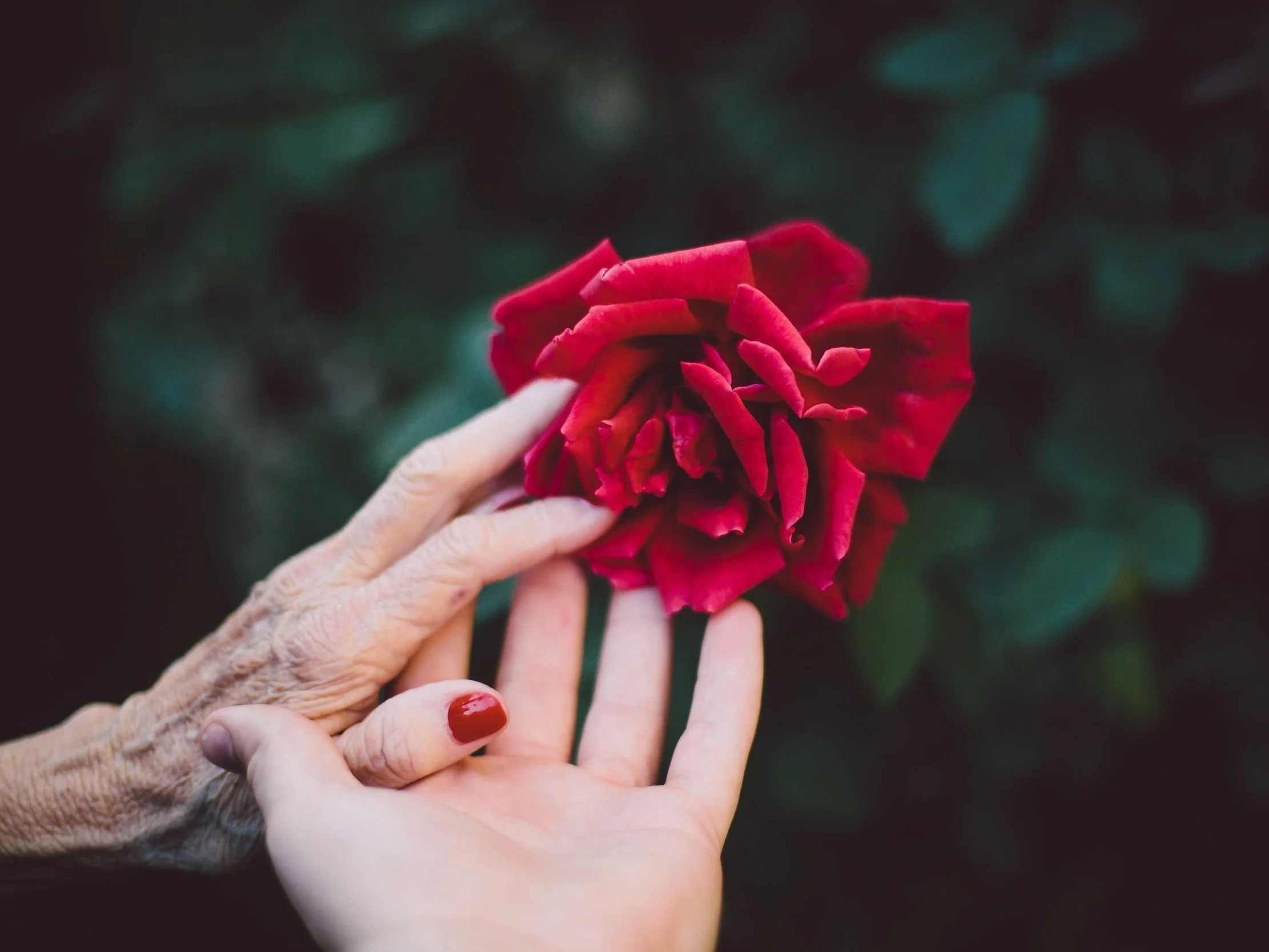THE PAIN PERSPECTIVE: Four Vital Mindset Shifts for Managing Your Chronic Pain
A life of chronic pain is accompanied by a number of difficult emotions: feelings of loss, anger, fear, sadness, to name a few - so much of the time our physical pain is matched by emotional pain. It can consume your life if you let it.
Focusing only on negative thoughts, or pushing them away altogether, can increase both our intensity of pain and our perception of pain - our pain mindset can actually make us hurt more! Thankfully there are mindset shifts we can make that help us to take charge and regain control of our pain and our life.
Increasingly, research shows that leaning into our emotions can be good for our health and, conversely, keeping them pushed down and locked away can actually worsen the ‘negative’ ones. It takes courage to move towards emotional pain but if we don’t shy away from it and allow ourselves to truly feel our feelings, all of them, surprisingly we can reap rewards of a more peaceful, and happier existence.
Here I briefly outline four pain-mindset-shift strategies. I will be exploring these and many others in more depth in my Serenity and Sage natural healing programme, launching later in the year.
You can read more about the Serenity and Sage Method HERE and sign up to my mailing list to be the first to know when the group coaching programme and one-to-one coaching opportunities launch by subscribing to the Serenity Matters newsletter at the bottom of this page.
MINDSET SHIFT #1
Acceptance Over Denial
It is part of human life to sometimes feel unfulfilled and unhappy, but when you live with a chronic pain condition it is all too easy for this to become the default position - questioning our lives and holding them up in comparison to others who aren’t hindered by pain. We often live in denial or anger, resisting or raging against our difficulties.
The first mindset shift we need to make when it comes to successful management of our pain, is to switch from denial to acceptance. If we try to resist our difficulties they become more than they need to be, deny them and they become worse, but when we make a conscious choice to let go of the anger and accept things as they are as it puts us back in the driving seat, in control of our journey.
But there is a problem to just being told that you have to accept. It’s one of the most difficult words to hear when you live with a chronic pain condition. Being told that you have to accept your pain in order to manage it can be triggering - it can provoke some very huge and painful emotions, anger being one of them.
The dictionary definition of acceptance is ‘the action of consenting to receive, or undertake, something offered’. It’s not helpful, it doesn’t even hint at all the layers of emotions that underlie acceptance. It’s a sterile interpretation, hinting at a bleak and desolate pain-filled future.
We certainly don’t ‘consent’ to a life of chronic pain - consenting takes away our control. Instead, we need to ‘choose’ to accept our pain - that puts us right back in the driving seat of our life. Choosing to accept your pain is one of the most rewarding gifts you can give yourself - accepting the reality, the weight and the emotion of your pain is the first step to lightening the load.
But, the truth is that acceptance is part of a grieving process - loss of the life we had before pain and loss of the future life we thought we would have. To choose to accept we have to first know that there are stages of this process through which we must pass before we can reach acceptance - we can’t just skip the processing of our mountain of emotions and race to the top and claim that we accept our pain.
This mindset shift can be a slow and arduous journey, but one which my Serenity and Sage Method can guide you through, with empathy, love and support, enabling you to reach that stage of true acceptance so that you can then begin the rest of your life, a life lived well with, and undeterred by, your pain.
“We cannot change anything unless we accept it”
(Carl Jung, 1875-1961)
MINDSET SHIFT #2
Emotional Balance Over Toxic Positivity
So, having accepted our situation, we are now in the driving seat - where do we go from here? The pain ‘experts’ would tell us to head to positivity town.
Having a positive mindset is about choosing to be hopeful that things will work out for the best, doing what we can with what we have, making the most of where we are. This doesn’t mean, though, that an attitude of ‘everything will be alright’ will automatically make our lives better - we have to take some action and proactive steps to improve things.
People who have positive thoughts have enhanced psychological and physical resilience and healing, as well as improved pain tolerance, relationships, and sense of inner peace. When we think positively, rather than focusing entirely on our pain, we have the power to reduce our experience of pain and discomfort.
But positive vibes can only take us so far and there is a flip-side to perpetual positivity, a danger to automatically making the best out of every single situation. Optimism is good for our health, but what is not great is the belief that positivity should be a permanent state of mind. Somewhere, somehow, being positive has mutated into ‘don’t even be the slightest bit negative or everything will come crashing down’ and this just leads to us deflecting, squashing, or invalidating our very real feelings and emotions. It can be so detrimental that constant positivity, or playing the happy game 24/7, has earned the label ‘toxic positivity’.
Really rubbish days can, and will, happen. And when they do, telling ourselves that ‘negative thoughts attract negative things’ is unhelpful, even damaging, and suppressing and controlling what we are really feeling inside can manifest in physical and mental health issues further down the line, even decrease our life expectancy.
The truth is that one of the most powerful health and wellbeing strategies IS that of adopting a positive mindset - but only when positivity is in a healthy balance with our other emotions. In fact, studies now show that those of us who have a higher range of emotional diversity (a balance of both positive and negative emotions) are proven to have less inflammation in our bodies than those with a smaller range of emotional diversity - so experiencing all the feelings can lead to a reduction in our pain levels!
So, we need to remember that there is no light without shade, no ups without downs -these are all part of the rich tapestry of life and, to experience life fully, we need to feel all the feels. Giving space to all the emotions, including the ‘bad’ ones, won’t feed negativity - fully experiencing them will help our brain and internal systems deal with, and process them, more effectively thereby leading to emotional growth.
MINDSET SHIFT #3
Compassion Over Criticism
Letting all those ‘negative’ emotions, feelings and thoughts in is one thing, how we react to them is another - much anguish can be caused if we perceive ourselves to be inadequate because of our chronic pain condition. Have you ever told yourself, ‘catch a grip’, ‘stop feeling sorry for yourself’, ‘wise up, pain never killed anyone’ or ‘what’s wrong with you?’ Maybe you haven’t used those exact phrases, but I am sure there have been times when you have spoken unkind words to yourself in relation to how you are managing your pain and with regards to the emotions your pain provokes.
In doing so you might think that you are strengthening your resolve against your pain but, in fact, in using this kind of harsh and uncaring language we are again cultivating avoidance of our emotions and as we have seen with toxic positivity, ignoring those feelings can have a detrimental impact on our bodies and minds and even lead to an increase in our pain levels.
Recognising, acknowledging and feeling the negative emotions is only self-care if we respond to them with kindness. When it comes to how we treat ourselves with regards to the emotions that arise from our pain, we need to shift our mindset from criticism to compassion.
When we sit with the feelings and emotions we need to allow ourselves to feel the sadness, the grief, and the anger, but without judgement, so that we can process the emotions in a positive way. When we allow ourselves to feel all the feelings without criticism we are saying, ‘I see you in your pain. You are human and incredibly strong. I accept and love you as you are’. The mindset shift from criticism to compassion - to using kinder and softer words when talking to ourselves - is a powerful one. Criticism only adds to our pain and suffering, while loving kindness is not only compassionate and comforting, it makes us more physically and emotionally resilient, even improving our immune system!
A life of chronic pain can really give our self-esteem a battering, but when we process our emotions with kindness and compassion we grow our confidence so we not only recognise and give grace to our needs, we can also vocalise them more easily to others. The more compassionate we are to ourselves, and the more we make ourselves number one priority, the more our happiness will increase. And happiness is contagious - it is only going to have a ripple effect and spread out to our loved ones - our family, friends, clients, and community.
MINDSET SHIFT #4
Gratitude Over Regret
Gratitude has become a bit of a wellbeing buzzword, so you might be a little sceptical about how it can help your pain mindset - finding reasons to be thankful when you are living with chronic pain might be hard to imagine, even impossible to contemplate. I get it. I have lived with chronic pain for over three decades and I know that it is not easy to make the mindset shift from regret to gratitude but, with practice, it can and does work!
Cultivating a grateful attitude can change how we feel about many aspects of our lives, including our pain. Gratitude helps us to value and find contentment with what we do have, rather than focusing on what we have lost or don’t have, and when we think of the things we are grateful for it gives us much less time to dwell on the negatives in our lives. Gratitude can help us fall in love with the existence we already have, rather than wishing that we had a different life - no matter what life throws at us, or how bad our pain is, we can always find something small to be grateful for.
Gratitude is like a seed, which when nurtured daily, can grow into an abundance of joy, and serenity of mind and heart. Practising gratitude won’t make our chronic pain go away, but it can improve our perception of the pain and reduce stress, thus breaking that old ‘pain - overwhelm - stress - more pain’ cycle, making it much easier to manage our pain. And because we can always find something to be thankful for, we also find it easier to see the meaning and purpose in our lives once we no longer focus on the discontent and regret.
“There are always things around us and within us to feel grateful for, even when things seem to be depressing, unfair or bleak”
(Lucie Andersen-Wood)






